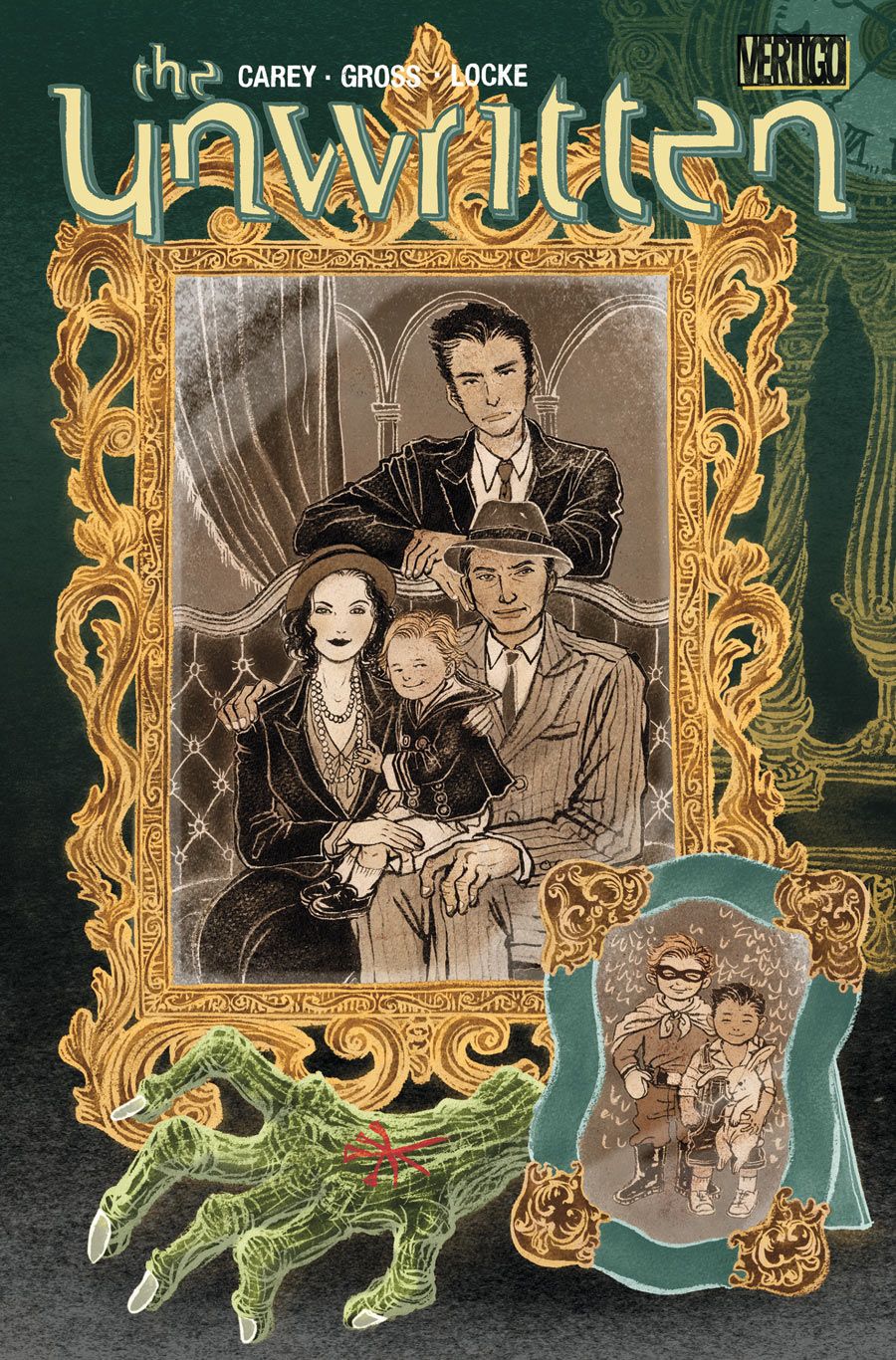Sometimes, reading "The Unwritten" is like reading really good fan fiction. Since the series plays within the realm of fiction and bringing it to life, while also balancing against copyright and other corporate interests, it can produce some surprising match-ups. In the latest issue, we, briefly, get to see Harry Potter fight Superman even if neither character is strictly identified as such. And, if your fangasm meter hasn't reached critical, the fight only stops when Frankenstein busts in and breaks it up. "The Unwritten" is a weird comic.
In the conclusion to "On to Genesis," Tom Taylor comes face to face with a half-brother he didn't know he had until recently. Born in the mid-'30s, his older half-brother's mother was the creator of a pulp superhero comic called "The Tinker" and, being the son of Wilson Taylor, Milton is a strange hybrid of faction and fiction like Tom. Where Tom is tied to Tommy Taylor (Harry Potter), Milton is tied to the Tinker (Superman with some elements of Captain Marvel) to the point of the Tinker himself showing up to fight Tom off, mistaking him for his father. After the build of Tom learning about his father and Milton's mother's relationship, the truth about his big brother isn't shocking, but still surprising.
Milton's life story is a strange funhouse mirror of what Tom's life could have been if he hadn't gotten it together and been given support from Lizzie and Richie. Without guidance, Milton's life fell apart as he struggled to reconcile his real and 'fictional' lives, never knowing what was real, eventually having a complete breakdown. It's easy to see how Tom could have wound up that way and it spurs him on. That the forces working against Tom up the stakes resonates with what he's learned from his father's journal and Milton.
Peter Gross' depiction of the Tinker in the 'real world' is striking and is a nice blend of a superhero that doesn't belong and reality. He doesn't stand out stylistically, but still doesn't look quite right. One of the sadder sequences of the comic relies on Gross making the character older and more 'normal,' and he pulls it off completely. You can see the character withering away before your eyes.
Vince Locke's finishes on the flashbacks provide the right look for that different time. The book's practice of other artists finishing Gross's layouts is a trick that never gets stale, providing a visual continuity in its foundation while also giving a superficial stylistic twist.
"On to Genesis" provided a window into Wilson Taylor's past that also shines some light on Tom, especially if he has an older brother who shares the same relationship with fiction that he does. The end of the issue sets up the big story that begins next month when the title begins shipping twice a month, but it will have a hard time topping this story.

